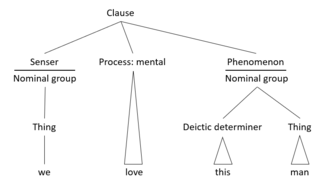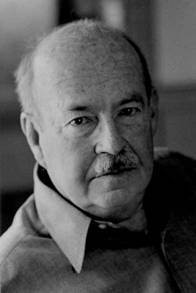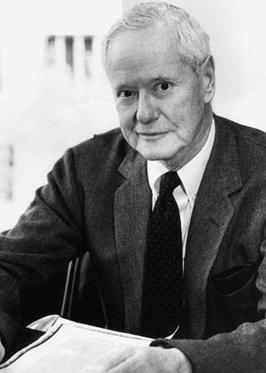
Ferdinand de Saussure was a Swiss linguist, semiotician and philosopher. His ideas laid a foundation for many significant developments in both linguistics and semiotics in the 20th century. He is widely considered one of the founders of 20th-century linguistics and one of two major founders of semiotics, or semiology, as Saussure called it.

Functional linguistics is an approach to the study of language characterized by taking systematically into account the speaker's and the hearer's side, and the communicative needs of the speaker and of the given language community. Linguistic functionalism spawned in the 1920s to 1930s from Ferdinand de Saussure's systematic structuralist approach to language (1916).

In sociology, anthropology, archaeology, history, philosophy, and linguistics, structuralism is a general theory of culture and methodology that implies that elements of human culture must be understood by way of their relationship to a broader system. It works to uncover the structures that underlie all the things that humans do, think, perceive, and feel.

David Émile Durkheim was a French sociologist. Durkheim formally established the academic discipline of sociology and is commonly cited as one of the principal architects of modern social science, along with both Karl Marx and Max Weber.

Talcott Parsons was an American sociologist of the classical tradition, best known for his social action theory and structural functionalism. Parsons is considered one of the most influential figures in sociology in the 20th century. After earning a PhD in economics, he served on the faculty at Harvard University from 1927 to 1973. In 1930, he was among the first professors in its new sociology department. Later, he was instrumental in the establishment of the Department of Social Relations at Harvard.

Robert King Merton was an American sociologist who is considered a founding father of modern sociology, and a major contributor to the subfield of criminology. He served as the 47th president of the American Sociological Association. He spent most of his career teaching at Columbia University, where he attained the rank of University Professor. In 1994 he was awarded the National Medal of Science for his contributions to the field and for having founded the sociology of science.

Structural functionalism, or simply functionalism, is "a framework for building theory that sees society as a complex system whose parts work together to promote solidarity and stability".
In the social sciences there is a standing debate over the primacy of structure or agency in shaping human behaviour. Structure is the recurrent patterned arrangements which influence or limit the choices and opportunities available. Agency is the capacity of individuals to act independently and to make their own free choices. The structure versus agency debate may be understood as an issue of socialization against autonomy in determining whether an individual acts as a free agent or in a manner dictated by social structure.
In the social sciences, triangulation refers to the application and combination of several research methods in the study of the same phenomenon. By combining multiple observers, theories, methods, and empirical materials, researchers hope to overcome the weakness or intrinsic biases and the problems that come from single method, single-observer, and single-theory studies.
Glossematics is a structuralist linguistic theory proposed by Louis Hjelmslev and Hans Jørgen Uldall although the two ultimately went separate ways each with their own approach. Hjelmslev’s theory, most notably, is an early mathematical methodology for the analysis of language which was subsequently incorporated into the analytical foundation of current models of functional—structural grammar such as Danish Functional Grammar, Functional Discourse Grammar and Systemic Functional Linguistics. Hjelmslev’s theory likewise remains fundamental for modern semiotics.

Manifest and latent functions are social scientific concepts created by anthropologist, Bronislaw Malinowski in 1922 while studying the Trobriand Islanders in the Western Pacific. It was later modified for sociology by Robert K. Merton. Merton appeared interested in sharpening the conceptual tools to be employed in a functional analysis.
Langueandparole is a theoretical linguistic dichotomy distinguished by Ferdinand de Saussure in his Course in General Linguistics.

Transaction Publishers was a New Jersey-based publishing house that specialized in social science books and journals. It was located on the Livingston Campus of Rutgers University. Transaction was sold to Taylor & Francis in 2016 and merged with its Routledge imprint.
Social network analysis (SNA) software is software which facilitates quantitative or qualitative analysis of social networks, by describing features of a network either through numerical or visual representation.

Sociology is a social science that focuses on society, human social behavior, patterns of social relationships, social interaction, and aspects of culture associated with everyday life. In simple words sociology is the scientific study of society. It uses various methods of empirical investigation and critical analysis to develop a body of knowledge about social order and social change. While some sociologists conduct research that may be applied directly to social policy and welfare, others focus primarily on refining the theoretical understanding of social processes and phenomenological method. Subject matter can range from micro-level analyses of society to macro-level analyses.
Structural linguistics, or structuralism, in linguistics, denotes schools or theories in which language is conceived as a self-contained, self-regulating semiotic system whose elements are defined by their relationship to other elements within the system. It is derived from the work of Swiss linguist Ferdinand de Saussure and is part of the overall approach of structuralism. Saussure's Course in General Linguistics, published posthumously in 1916, stressed examining language as a dynamic system of interconnected units. Saussure is also known for introducing several basic dimensions of semiotic analysis that are still important today. Two of these are his key methods of syntagmatic and paradigmatic analysis, which define units syntactically and lexically, respectively, according to their contrast with the other units in the system.

In sociology, action theory is the theory of social action presented by the American theorist Talcott Parsons.

This bibliography of sociology is a list of works, organized by subdiscipline, on the subject of sociology. Some of the works are selected from general anthologies of sociology, while other works are selected because they are notable enough to be mentioned in a general history of sociology or one of its subdisciplines.
Theory of language is a topic from philosophy of language and theoretical linguistics. It has the goal of answering the questions "What is language?"; "Why do languages have the properties they have?"; or "What is the origin of language?". In addition to these fundamental questions, the theory of language also seeks to understand how language is acquired and used by individuals and communities. This involves investigating the cognitive and neural processes involved in language processing and production, as well as the social and cultural factors that shape linguistic behavior.
Eliot Freidson was a sociologist and medical sociologist who worked on the theory of professions. Charles Bosk says that Freidson was a founding figure in medical sociology who played a major role in the growth and legitimization of the subject. The American Sociological Society awards the Eliot Freidson Outstanding Publication Award for medical sociology every two years.






